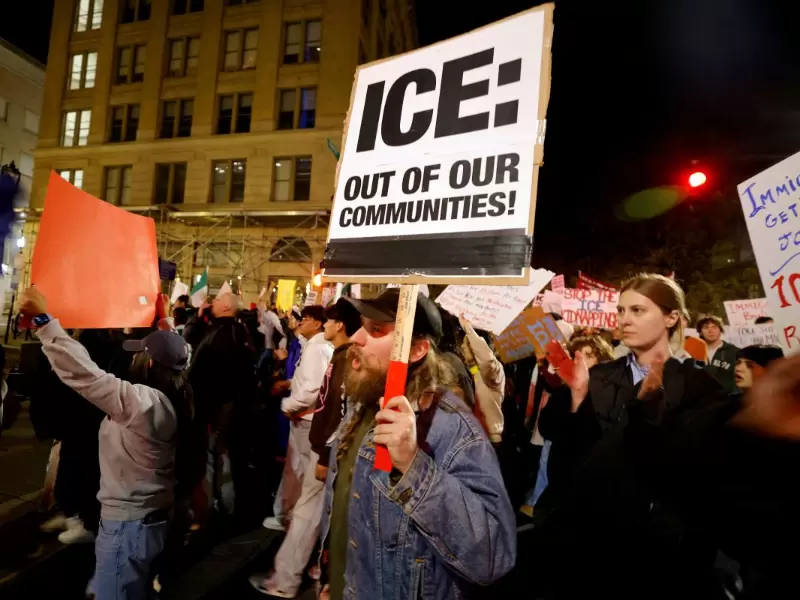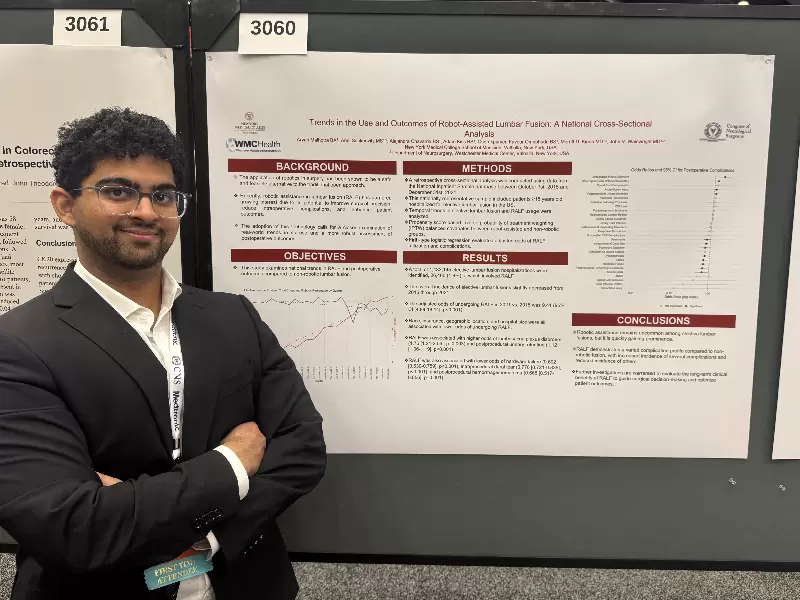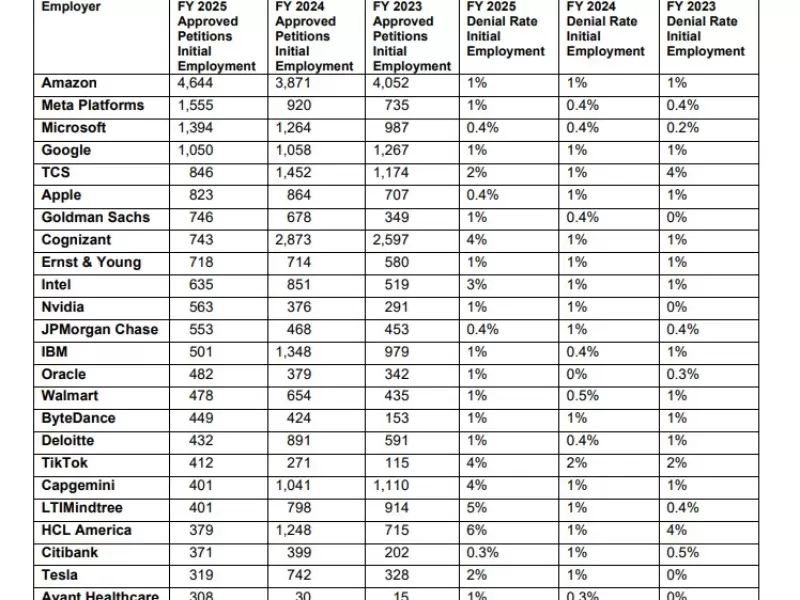Charlotte immigration raids by Trump administration ignite political tensions
Raids in Charlotte and other cities capped a year of bitter fights over immigration in a rapidly diversifying swing state.
 FILE PHOTO: People march in protest against federal authorities as they expand their crackdown on illegal immigration, in Raleigh, North Carolina, U.S. November 18, 2025. / REUTERS/Jonathan Drake/File Photo
FILE PHOTO: People march in protest against federal authorities as they expand their crackdown on illegal immigration, in Raleigh, North Carolina, U.S. November 18, 2025. / REUTERS/Jonathan Drake/File Photo
North Carolina this week emerged as a new front in President Donald Trump’s immigration crackdown—one poised to shape one of next year’s most competitive U.S. Senate races.
Raids in Charlotte and other cities capped a year of bitter fights over immigration in a rapidly diversifying swing state—a battle that both Democrats and Republican officials say could echo into the next presidential election. North Carolina, a key battleground Trump narrowly carried in his last three campaigns, remains central to the election strategies of both Republicans and Democrats.
The latest flashpoint follows a bruising summer showdown in the state over whether local sheriffs should cooperate with federal authorities in raids against illegal immigration, a clash that ended with Republicans overriding the Democratic governor’s veto.
The Mecklenburg County Sheriff's Office said on Nov. 20 that the operation in Charlotte had finished, but federal officials did not confirm that, saying that the raids are "not ending anytime soon."
Trump’s push to arrest migrants in Charlotte and Raleigh is galvanizing Democrats ahead of the 2026 midterm elections, when control of a Republican-led Congress will be at stake.
Unlike other places the administration has targeted, such as California and Illinois, which vote solidly Democratic, North Carolina offers a test case of whether Trump's immigration policies can swing voters one way or the other.
Masked U.S. Customs and Border Protection agents in camouflage patrolled streets in Hispanic neighborhoods this week. Videos of arrests have been posted across social media, including one showing masked agents smashing a pickup window and dragging a man out. More than 370 people have been arrested, the U.S. Department of Homeland Security said.
“People are terrified, they’re angry, they’re hiding,” Susan Rodriguez-McDowell, a Democratic county commissioner in Charlotte, said of her constituents. “They’re mad as hell that this happened in our community, and they want to know what the hell we are going to do about it.”
Charlotte, a top banking center in the nation, has been rapidly changing as it has grown into a major metropolis of 2.8 million people. Since 2000, the immigrant population in the city and the surrounding region has grown more than 126 percent and now comprises about 16.5 percent of all residents. There are more than 8,000 Hispanic-owned businesses in the area, according to the Latin American Chamber of Commerce in Charlotte, resulting in an economic output of $12.9 billion annually.
The incursion by CBP agents into Charlotte triggered protests by angry residents and led to some businesses closing because of concerns over raids outside their doors.
Roiling the Senate race
The raids have roiled the race to replace Republican Thom Tillis in the U.S. Senate. Former two-term Democratic Governor Roy Cooper is likely to face either Michael Whatley, a Trump-endorsed candidate and the former chair of the Republican National Committee, or Don Brown, a lawyer. Polls show Cooper in the lead.
Republicans say Cooper, while governor, pushed for North Carolina to become a “sanctuary state,” which typically has laws or policies that limit cooperation with federal immigration enforcement. Cooper in turn accused the Trump administration this week of “randomly sweeping up people based on what they look like, including American citizens and those with no criminal records.”
Republicans say the raids are mostly aimed at dangerous criminals. “The people that they're picking up off the streets aren't just the typical people that you would be wanting to have living next door to you or in the carpool line at your child's school,” said Kyle Kirby, the chair of the Republican Party in Charlotte. “These are people, for the most part, who have perpetrated violent and dangerous crimes.” Reuters was unable to verify the immigration status or criminal history of those detained.
With the elections a year away, it is not clear whether this week's raids will shift voters. But a poll conducted by the Carolina Journal, a nonpartisan publication that covers state government, this month found that the percentage of residents who view the state on the wrong track has risen 20 points in the 12 months since Trump was elected.
Donald Bryson, the publisher of Carolina Journal, said the border security focus could benefit Republicans, who tend to place a higher priority on the issue than Democrats. But another local pollster, Michael Bitzer of Catawba College, said the issue could also animate Democrats concerned that the Trump administration is trying to intimidate Hispanic voters.
While the immigration raids have caused tensions locally, the battle lines for the fight were drawn in July, when the Republican-controlled North Carolina legislature passed a measure mandating that county sheriffs cooperate with federal immigration authorities. Democrats resisted the bill, and the state’s Democratic governor, Josh Stein, vetoed it.
Republicans cast it as a referendum on public safety and voted to override Stein’s veto. The state House Republican Caucus launched an ad campaign against vulnerable Democrats in the legislature up for reelection next year, citing their vote against the measure. The targeted lawmakers “lacked the courage to stand up to criminal illegal immigrants,” the ads said.
Democrats plan to fight back in the coming months by arguing the Trump administration is overreaching.
"We'll have a Democratic voice in every community talking about what the federal government is doing to harm them," said Anderson Clayton, chair of the North Carolina Democratic Party.
ADVERTISEMENT
ADVERTISEMENT
E Paper
Video



 Reuters
Reuters











Comments
Start the conversation
Become a member of New India Abroad to start commenting.
Sign Up Now
Already have an account? Login